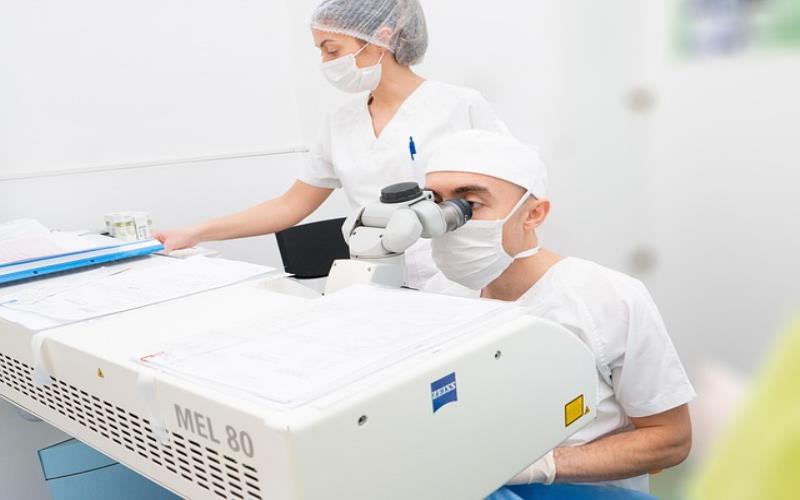To guarantee a seamless and fruitful experience, careful planning is required prior to cataract surgery. As you anticipate this transformative procedure, equipping yourself with knowledge becomes a powerful ally. Understanding the intricacies of cataract surgery and adopting proactive measures can significantly enhance both the process and the subsequent recovery. In this exploration of five essential tips, we delve into the key aspects that empower individuals to approach cataract surgery with confidence and a comprehensive readiness.
1. Knowledge is Power
Knowledge is a potent tool in preparing for cataract surgery. It is essential to comprehend the nuances of the process, including its length and important milestones. Many individuals wonder how long cataract surgery takes. The duration typically varies, but on average, the surgery itself usually lasts around 15 to 20 minutes per eye. The clouded lens is removed during this relatively quick process, and an artificial intraocular lens (IOL) is placed in its place. By gaining insight into the surgical process, patients can alleviate concerns and approach the experience with a more informed perspective, fostering a sense of empowerment and confidence.
2. Communicate Effectively with Your Surgeon
Effective communication with your eye surgeon is paramount in ensuring a successful cataract surgery experience. Additionally, patients often appreciate a surgeon who can communicate effectively, as it fosters trust and confidence in the expertise of the best laser eye surgeon. Make it a priority to have a candid conversation to answer any queries or worries you may have regarding the process. Establishing a comprehensive understanding of the surgery, including potential risks and benefits, allows for a more personalized and attentive approach to your specific needs. By sharing pertinent information about your medical history and any pre-existing conditions, you contribute to a tailored care plan that maximizes the chances of a smooth and complication-free surgery. Regular and transparent communication builds a trusting relationship with your surgeon, fostering an environment where you feel supported and well-informed throughout the entire process.
3. Follow Preoperative Instructions Diligently
Following preoperative instructions diligently is essential for optimizing the outcome of your cataract surgery. Your healthcare team will provide specific guidelines tailored to your individual needs, which may include fasting requirements, discontinuation of certain medications, and the use of prescribed eye drops. Adhering strictly to these instructions ensures a smooth and efficient surgical process. The purpose of preoperative measures is to reduce the possibility of problems and improve the procedure’s overall success. By cooperating with your healthcare team and carefully following their guidance, you contribute significantly to the safety and effectiveness of your cataract surgery, promoting a positive surgical experience and a successful recovery.
4. Arrange Postoperative Support
Arranging postoperative support is a crucial aspect of preparing for cataract surgery. It is best to make arrangements with a friend or relative who can help with transportation and stay with you the day of the procedure. Having a reliable support system in place contributes to a stress-free experience, ensuring that you can focus on your recovery without concerns about logistical details. This postoperative assistance is particularly valuable on the day of the surgery when your vision may be temporarily impaired, and having someone familiar with the process can provide comfort and reassurance. By proactively organizing postoperative support, you create a supportive environment that enhances your overall experience and aids in a smoother transition from the surgical facility to your recovery space.
5. Prepare Your Home Environment
Preparing your home environment is a key component of getting ready for cataract surgery. Make necessary modifications to create a designated recovery space where you can comfortably recuperate. Ensure that essential items, such as prescribed medications, comfortable seating, and required eye-care supplies, are easily accessible. Setting up this dedicated space minimizes the need for unnecessary movement and reduces the risk of accidents during the initial stages of your recovery. Additionally, consider organizing your living space to accommodate any temporary visual limitations you may experience post-surgery. A well-prepared home environment is instrumental in promoting a smooth and stress-free recovery process, allowing you to focus on rest and healing with minimal disruptions.
Conclusion
By fostering clear communication with your surgeon, diligently following preoperative instructions, arranging postoperative support, and optimizing your home environment, you actively participate in ensuring a successful outcome. As you embark on this journey, remember that informed preparation enhances both the surgical process and the subsequent recovery, allowing you to navigate the experience with confidence and ease.





